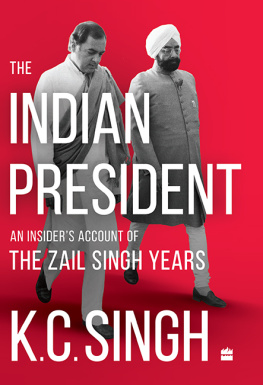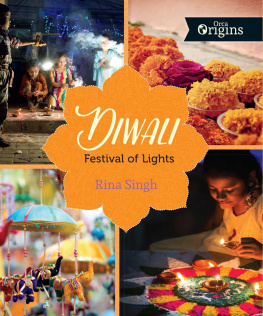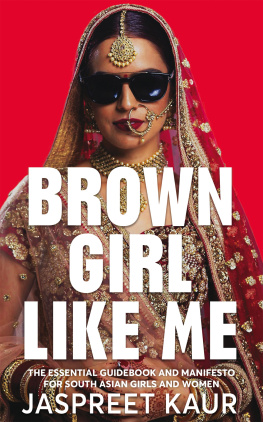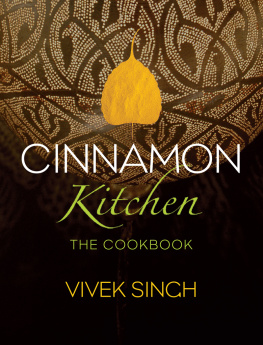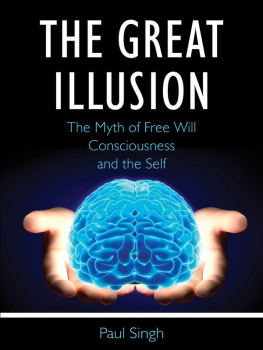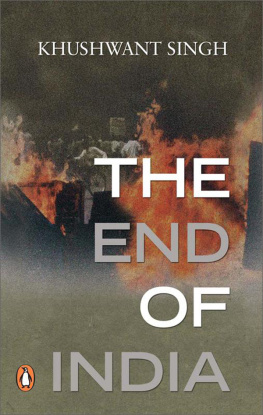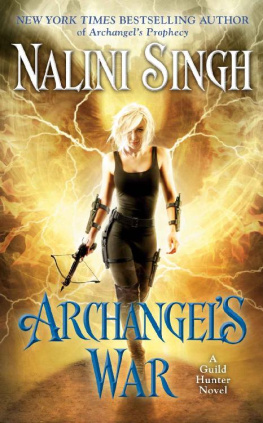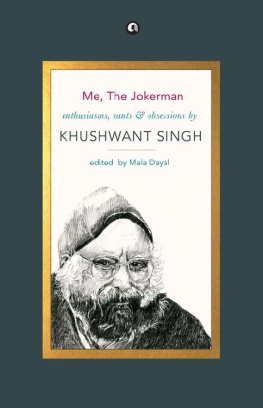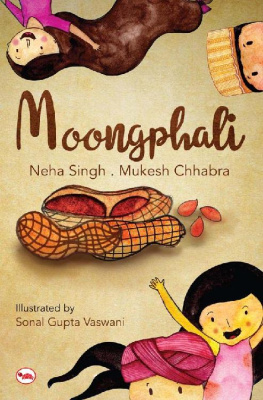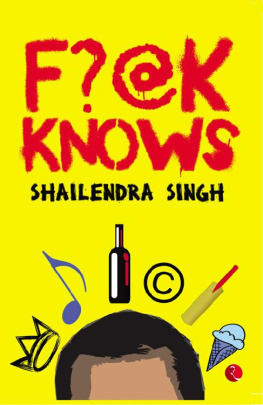Jaspreet Singh - Chef
Here you can read online Jaspreet Singh - Chef full text of the book (entire story) in english for free. Download pdf and epub, get meaning, cover and reviews about this ebook. year: 2010, publisher: Bloomsbury USA, genre: Art. Description of the work, (preface) as well as reviews are available. Best literature library LitArk.com created for fans of good reading and offers a wide selection of genres:
Romance novel
Science fiction
Adventure
Detective
Science
History
Home and family
Prose
Art
Politics
Computer
Non-fiction
Religion
Business
Children
Humor
Choose a favorite category and find really read worthwhile books. Enjoy immersion in the world of imagination, feel the emotions of the characters or learn something new for yourself, make an fascinating discovery.

- Book:Chef
- Author:
- Publisher:Bloomsbury USA
- Genre:
- Year:2010
- Rating:3 / 5
- Favourites:Add to favourites
- Your mark:
- 60
- 1
- 2
- 3
- 4
- 5
Chef: summary, description and annotation
We offer to read an annotation, description, summary or preface (depends on what the author of the book "Chef" wrote himself). If you haven't found the necessary information about the book — write in the comments, we will try to find it.
Chef — read online for free the complete book (whole text) full work
Below is the text of the book, divided by pages. System saving the place of the last page read, allows you to conveniently read the book "Chef" online for free, without having to search again every time where you left off. Put a bookmark, and you can go to the page where you finished reading at any time.
Font size:
Interval:
Bookmark:
I am grateful to the Canada Council for the Arts, the Corporation of Yaddo, the Markin-Flanagan Distinguished Writers Program, le Conseil des Arts et des Lettres du Qubec, and the Banff Centre for the Arts for providing assistance to create this work.
The poem Afterwards appeared originally in danDelion (vol. 33, #1). Irem is modeled partially on Shahnaz Kauser, someone I read about in newspaper articles by Mannika Chopra: A Pakistani Mother Speaks of Life in Indian Jail Limbo ( The Boston Globe , June 2002) and Khalid Hasan: Jailed in India, Unwanted in Pakistan ( Friday Times , August 2002). Had Saadat Hasan Manto been alive, he would have written a story about Shahnaz Kauser. This one line moved and inspired me throughout the creation of this work. Shahnazs story has been best told in Sumantra Boses Kashmir: Roots of Conflict, Paths to Peace (Harvard University Press, 2005). Thanks to Pankaj Mishra ( New York Review of Books ) and Basharat Peer ( Curfewed Night ) for bold reporting on Kashmir that brought attention to interrogation camps like Papa-1 and Papa-2. I relied on several publications to understand Siachen or Rose Glacier, starting with the 1912 expedition accounts of Fanny Bullock Workman. No one has written better on Siachen than Amitav Ghosh in Countdown (Ravi Dayal, 1999) and Kevin Fedarko, The Coldest War ( Outsider , February 2003). I am indebted to both for valuable information. Other books I found useful include: Conflict Without End (Viking, 2002) by Lt. Gen. (Retd.) V. R. Raghavan, War at the Top of the World (Key Porter, 1999) by Eric Margolis, and Behind the Vale (Roli, 2003) by M. J. Akbar. Thanks to the outspoken Indian army soldiers and officers for sharing Kashmir stories. Every flake of snow (and if I may, every glacier) begins with a nucleation site, a tiny particle. That tiny particle (for this book) was my inability to comprehend the early death of the poet Agha Shahid Ali (19492001). These pages are immensely inspired by his life and work.
I would like to thank everyone at Vhicule Press (Montreal), especially Nancy Marrelli, Bruce Henry and Simon Dardick. To Bloomsbury, and Penguin India. For their generous advice on early drafts thanks to Umarraj Singh Saberwal, Chef Olivier Fuldauer, Renuka Chatterjee, Robert Majzels, Lissa Cowan, and Nidhi Srinivas. Thanks (for many reasons) to Adi, Rosa, Amit Pal, Janice Lee, Dilreen Kaur, Farhat Rehman, Denise Drury, Agatha Schwartz, Aparna Sundar and Taras Grescoe. To Chef Cameron Stauch, whom I interviewed in New Delhi, to Jerome Lowenthal, my Beethoven consultant, to Lorna Crozier (the line in italics on page 95 is inspired by her poetry collection The Sex Lives of Vegetables ), to Maria Jos de la Macorra for the sketch on page 31, to Negar Akhavi for sharing the Dalai Lama Chinese gulag story, to Nadia Kurd, Riaz Mehmood and Wajahat Ahmad for the Kashmiri translation and Perso-Arabic script on page 128.
Special thanks to Andrew Steinmetz, Jackie Kaiser, Natasha Daneman and Alexandra Pringle.
Then you will go to Kashmir
in no hurry
and hear not a single fire
The blessed women
will paint
saffron on your skin
and you will build a house there,
and weave a basket for pomegranates,
and glaze pots in fire
The jagged mountains
will no longer weep
slow muddy tears
or tremble behind
dwarf trees anymore.
Sit. There on encrusted ice
they will ask you
Look how it gleams, feel it moving.
Dust the nozzles
of fountains in Shalimar Bagh
in the ruined Nishat Bagh
they will ask you
Plant paisley
in one or two cemeteries
where shade bites
the sun. The women
will lead you to damp green
shrines of Noor-u-din. There
you will locate one or two eggs in nests
and mounds of cricket balls
and lost men, too, and
schoolchildren.
Bright smiles
will mark them from the rest, just like
the tattoo on your skin
marked you. In autumn
you will write long letters
addressed to your old self
a profusion of dots and dashes...
Old photographs, defeats, loves, recipes
you will move the entire attic
to an unfinished room
and hire
a strong houseboat and help.
Yes, your old forgotten self
the stranger will paddle you
to the shadows of never
pruned
plane trees. There in autumn in Kashmir
the two of you would meet. By the roots
and barks and
Technicolor leaves
and millions of dead.
Dont just sit there. Smell them.
On the second day of my arrival the eighth of December when I woke up in the hotel room I read in the paper that just after eleven oclock the previous night General Kumar had killed himself. He had eaten dinner with Rubiya, and after saying goodnight to her he returned to his room. The servant served tea, and the General took his medication; half an hour later he shot himself. He used the defeated Pakistani generals pistol from the glass cabinet, and fired only once through his left jaw to do the job.
The paper made no mention of Rubiyas wedding plans or the postponement of the wedding. The front-page editorial talked about his sickness, the battle with disease, and praised the Hero of Kargil and the Hero of Siachen Glacier for exceptional leadership and vision.
He took over the Governorship of Kashmir, the editorial said, when the State was going through a particularly difficult time.
General Sahib was cremated on the slopes of the hill overlooking the river, not far from the ruins of the Mughal fort. Thin layers of ice on the banks of the river turned orange, reflecting the flames. A three-minute silence was observed before Rubiya offered her fathers body to nothingness. The battles stopped on distant mountains and transistor radios stopped and vehicles stopped on the roads and cooking and eating stopped. People paused, interrupted whatever they were doing.
During those three minutes I heard restrained sobbing coming from the Kashmiri houses. Then agni, the burst of flames. The shadow of rising smoke flickered on the hard ground. The December chill disappeared temporarily. A can of Coke fell from an old womans hand and rolled towards the black boots of troops in ceremonial dress.
The military band was part of the ceremony. Men in kilts played mournful bagpipes and snared the drums. Troops from 1 Sikh gave a twenty-one gun salute. Two or three dogs kept running by the ice, absolutely oblivious of the flag of our country, flying at half-mast. And all those who stood there, the officers and jawans and their wives, they had no idea about the battles the General was really fighting. They spoke in clichs, and they stared accusingly at Rubiya as if she had caused her fathers death. There are decent boys in our own country, their faces said, Why dont you marry one of our own? Colonel Chowdhry and Patsy Chowdhry were absent, but so many others were there. Bina was there, holding a paisley hanky, weeping profusely. For nothing.
General Sahib, good man dee lal-tain , I raised my voice. General Sahib, Emperor of Kulfi.
What are you saying, sir? asked the young officer standing next to me.
Nothing. Gibberish. Bakwas.
Three days later I met Rubiya in the Mughal garden. I had arranged to meet her at three in the afternoon, but I got delayed.
She was looking at the children playing in snow as I walked in. The children had on two or three layers of heavy woolens and they were making balls of ice. There was snow on the ground, on trees, on ruined walls and fountains. Everything sparkled.
At first I saw only her back. Then I climbed up the stairs and saw her from the pavilion. She was looking at the children as if she wanted to tell them that the world was not what they had thought it was. I did not feel like disturbing her.
Next pageFont size:
Interval:
Bookmark:
Similar books «Chef»
Look at similar books to Chef. We have selected literature similar in name and meaning in the hope of providing readers with more options to find new, interesting, not yet read works.
Discussion, reviews of the book Chef and just readers' own opinions. Leave your comments, write what you think about the work, its meaning or the main characters. Specify what exactly you liked and what you didn't like, and why you think so.

